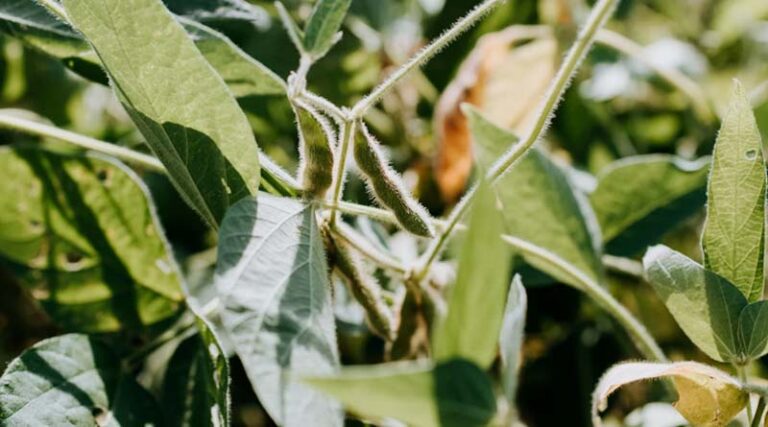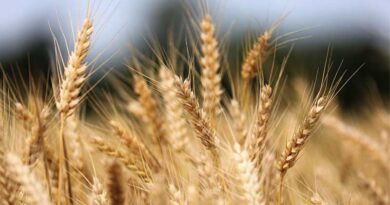
Can Oilseeds Become Profitable for Indian Farmers? The Road to Edible Oil Self-Reliance by 2047
13 October 2025, New Delhi: For farmers to drive India’s edible oil ambitions, oilseed cultivation must offer incomes comparable to or better than alternative crops. Current farm economics show a clear profitability gap between oilseeds and cereals and explain why many growers prefer wheat or paddy. The Kisan-Vigyan Foundation’s white paper Edible Oil – Strategising for 2047 argues that rural households will only embrace a large-scale shift into oilseeds if assured returns, better risk management and improved agronomy are in place.
The profitability challenge
Empirical data demonstrates the disparity. Soybean, a major oilseed in terms of acreage, yields much lower net returns per hectare compared with irrigated cereals. Farmers planted area according to risk-adjusted expected returns, and when price assurance is weak and procurement channels are limited, oilseeds become a less attractive option despite large national demand for edible oil. This is compounded by high input costs, rainfall dependence and fragmented holdings.
MSPs and the incentive structure
Recent Minimum Support Price (MSP) increases are visible across several crops and are significant from a signalling perspective. The table below reproduces the MSP schedule and growth percentages to show the scale of policy adjustments:
| CROP | MSP 2024-25 (₹/quintal) | MSP 2025-26 (₹/quintal) | INCREASE (₹) | GROWTH (%) |
| Nigerseed | 8,717 | 9,537 | 820 | 9.41 |
| Sesamum | 9,267 | 9,846 | 579 | 6.25 |
| Soybean (Yellow) | 4,892 | 5,328 | 436 | 8.91 |
| Sunflower Seed | 7,280 | 7,721 | 441 | 6.06 |
| Groundnut | 6,783 | 7,263 | 480 | 7.08 |
While these MSP increases strengthen the policy backdrop, farmers need more than price announcements. Coverage of procurement must be widened, support for storage and grading improved, and farmer organisations empowered so producers can aggregate, negotiate and access processing margins more effectively.
Agronomy, technology and risk management
Closing the yield gap requires better seeds, extension services and water management. Where micro-irrigation has been adopted, case studies show dramatic yield improvements and higher net returns, making a strong case for targeted subsidies and technical outreach. The introduction of high-yielding and resilient varieties, including the carefully regulated deployment of proven genetically improved lines, could accelerate outcomes if accompanied by robust extension and market safeguards.
Market linkages and value addition
Rural incomes will improve not only through higher yields but also through better post-harvest handling and local value addition. Small-scale oil extraction units, aggregated by FPOs, can increase farmer realisations by capturing more of the processing margin. Expanding crop insurance coverage and tailoring premium subsidies to the peculiar risks of oilseed production will reduce downside for smallholders.
If oilseed cultivation is to become a preferred livelihood option, policy and industry must align to create a reliable economic proposition for farmers. Strengthening procurement, increasing seed replacement rates, expanding irrigation and embedding farmer organisations into processing and marketing are all essential steps. The white paper from the Kisan-Vigyan Foundation lays out a farmer-centred roadmap; its success will be measured in whether smallholders see tangible improvements in incomes and reduced risk in the coming decade.
Download the full white paper on Edible Oil – Strategising for 2047 here to explore the detailed data, scientific insights, and policy recommendations.
About Kisan-Vigyan Foundation
Kisan-Vigyan Foundation (KAKV) is a think-tank created to focus on Food & Feed Security of India and to support policies for the economic welfare of the farmers. The foundation has strong governing council members from core sectors of agriculture to work on fact-based research findings and to raise concerns where necessary.
Also Read: Samunnati FPO Conclave 2025: Building Partnerships for a Future-Ready FPO Ecosystem
📢 If You’re in Agriculture, Make Sure the Right People Hear Your Story.
From product launches to strategic announcements, Global Agriculture offers unmatched visibility across international agri-business markets. Connect with us at pr@global-agriculture.com to explore editorial and advertising opportunities that reach the right audience, worldwide.






